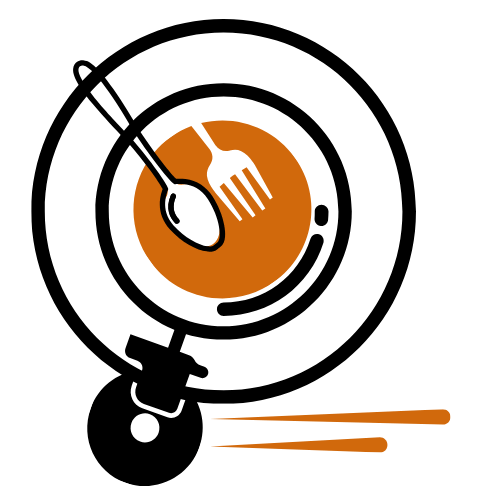bodybuilding & Fitness
Pump Up Your Gains: The Science Behind Effective Bodybuilding Exercises
Pump Up Your Gains: The Science Behind Effective Bodybuilding Exercises
As you hit the gym, you’re not just lifting weights, you’re building a stronger, leaner, and more powerful you. But, have you ever wondered what makes certain exercises more effective than others? What’s the science behind the gains? In this article, we’ll dive into the world of bodybuilding and explore the most effective exercises, backed by science.
When it comes to building muscle, there’s no one-size-fits-all approach. What works for one person may not work for another. However, there are certain principles and exercises that have been proven to be effective time and time again. In this article, we’ll explore the science behind some of the most effective bodybuilding exercises, and provide you with a comprehensive guide to help you pump up your gains.
Section 2: The Importance of Progressive Overload
Progressive overload is a fundamental principle of bodybuilding. It refers to the gradual increase in weight or resistance that you use over time to challenge your muscles and stimulate growth. Without progressive overload, your muscles will not be forced to adapt and grow, and you’ll plateau. In a study published in the Journal of Strength and Conditioning Research, researchers found that subjects who used progressive overload for 12 weeks experienced significant gains in muscle mass and strength compared to those who did not.
One of the most effective ways to implement progressive overload is through the use of compound exercises such as squats, deadlifts, and bench press. These exercises work multiple muscle groups at once, and can be modified to increase the weight or resistance over time. For example, you can start with a weight that allows you to complete 8-12 reps, and then gradually increase the weight as you get stronger.
Section 3: The Power of Isolation Exercises
While compound exercises are essential for building overall muscle mass, isolation exercises can help to target specific muscle groups and improve overall muscle balance. Isolation exercises, such as bicep curls and tricep extensions, are designed to target a specific muscle group, and can be used to improve muscle definition and tone.
In a study published in the Journal of Exercise Rehabilitation, researchers found that subjects who used isolation exercises for 12 weeks experienced significant improvements in muscle definition and tone compared to those who did not. Isolation exercises can also be used to target specific muscle imbalances, such as a weak bicep or tricep.
Section 4: The Role of Rest and Recovery
Rest and recovery are often overlooked, but they’re just as important as the exercises themselves. When you’re lifting weights, you’re causing micro-tears in your muscles, and your body needs time to repair and rebuild them. Without adequate rest and recovery, your muscles won’t be able to recover, and you’ll be more prone to injury.
In a study published in the Journal of Strength and Conditioning Research, researchers found that subjects who took regular rest days experienced significant improvements in muscle recovery and reduced muscle soreness compared to those who did not. Adequate rest and recovery can also help to improve muscle growth and strength, as your body is able to focus on rebuilding and repairing your muscles rather than just trying to recover from the previous day’s workout.
Section 5: The Importance of Proper Form and Technique
Proper form and technique are essential for effective bodybuilding. When you’re lifting weights, you’re putting your joints and muscles under a significant amount of stress, and improper form can lead to injury. In a study published in the Journal of Orthopaedic and Sports Physical Therapy, researchers found that subjects who used proper form and technique when lifting weights experienced significant reductions in injury risk compared to those who did not.
Proper form and technique can also help to improve muscle recruitment and activation, which can lead to greater muscle growth and strength. When you’re using proper form and technique, you’re able to engage the correct muscle groups and avoid using momentum or other compensatory movements, which can help to improve overall muscle function.
Section 6: The Role of Nutrition and Supplementation
Nutrition and supplementation play a critical role in bodybuilding. When you’re lifting weights, you’re causing micro-tears in your muscles, and your body needs the necessary nutrients to repair and rebuild them. Adequate nutrition and supplementation can help to support muscle growth and recovery, and can also help to improve overall health and well-being.
In a study published in the Journal of the International Society of Sports Nutrition, researchers found that subjects who consumed a high-protein diet experienced significant improvements in muscle growth and strength compared to those who did not. Adequate nutrition and supplementation can also help to improve muscle recovery and reduce muscle soreness, which can help to improve overall training effectiveness.
In conclusion, effective bodybuilding requires a combination of proper exercise selection, progressive overload, rest and recovery, proper form and technique, and adequate nutrition and supplementation. By incorporating these principles into your training program, you can help to improve muscle growth and strength, and achieve your bodybuilding goals. Remember to always consult with a qualified healthcare professional or certified personal trainer before starting any new exercise program.
[ad_2]
